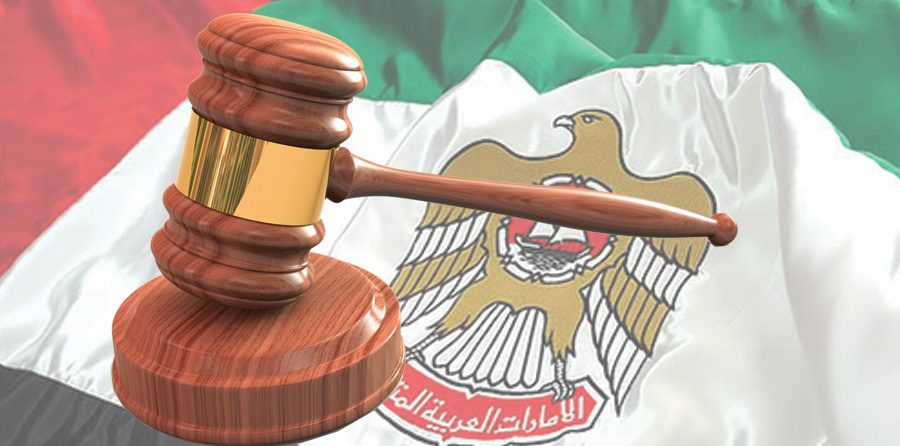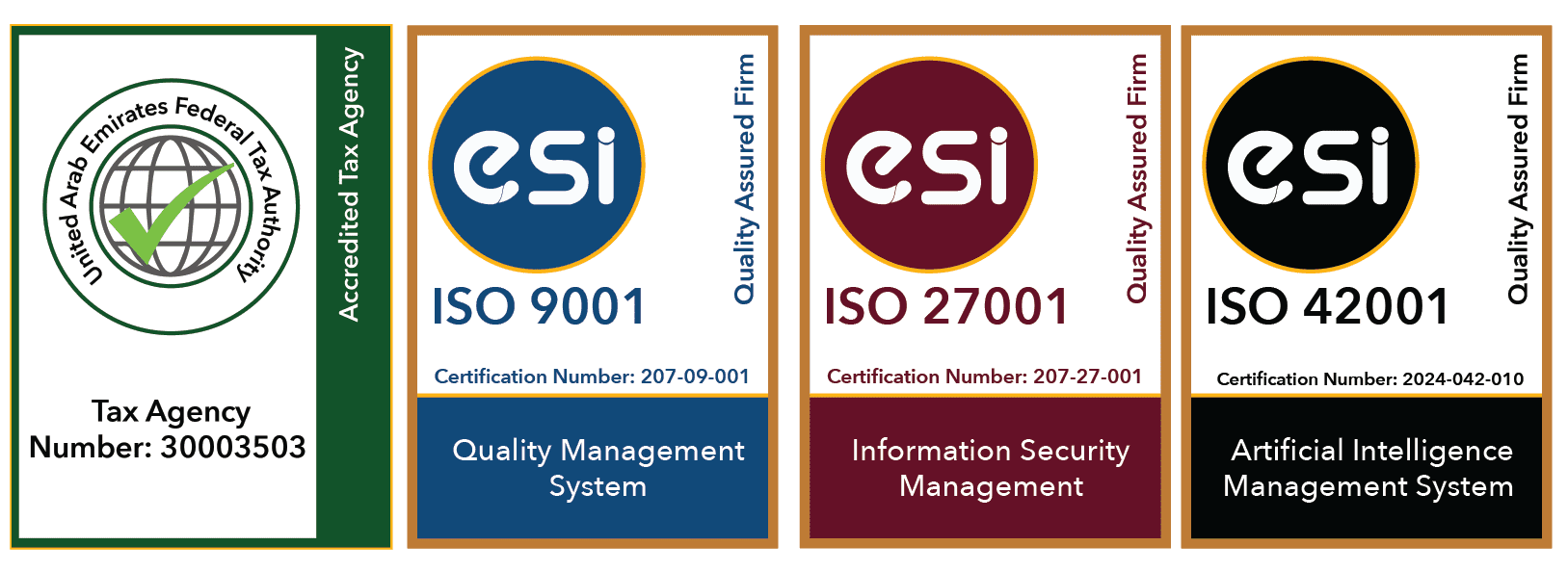UAE Economic Substance Regulations
July 29,2019 / Haroon Juma / Economic Substance Regulation

Getting ready for the UAE Economic Substance Regulations
The United Arab Emirates (UAE) Government has taken a progressive step in its commitment to comply with international good governance standards by ratifying Resolution No.31 of 2019, concerning Economic Substance Regulations in the UAE, “the Regulations” on April 30, 2019.
The UAE Economic Substance (ES) rules have been designed to follow the guidance issued by the European Union (EU) and Organisation for Economic Co-operation and Development (OECD).
The economic substance rule comprises three (3) key areas of tests that all companies who are commencing relevant activities in the country must undertake and pass to demonstrate their economic substance:
1) Direct and Manage
2) Core Income Generating Activities (CIGA)
3) Adequate
Below are the guidelines for entities that operate “Relevant Activities”.
1. Directed and Managed
The directing and managing of the relevant activity of the entity should be within the UAE. The requirement may be but is not limited to a certain number of directors being physically present in the country, board meetings in the country making strategic decisions, and records of written minutes signed by the directors attending the meetings.
For entities where there is no board of directors, the rules have indicated that the manager should be physically present in the country when taking key decisions relating to the management and operation of the business.
The regulation also allows entities to outsource a Relevant Activity to third party service providers, provided that they are able to:
1) Demonstrate adequate supervision of the outsourced activity,
2) Conduct the service within the country
3) The economic substance of service providers will not be counted multiple times by multiple Licensees when evidencing their own substance in the State.
Implications:
- Decision makers (Directors and/or Managers) should be physically present in the UAE when taking strategic decisions for the company.
- Services from a third-party provider are allowed in case of no Directors or Managers.
2. Core Income Generating Activities (CIGA)
The Economic Substance Regulations have stated that the entity that carries out relevant activities should be able to prove that the relevant CIGAS has been commenced in the UAE.
Each relevant activity has its own criteria for the CIGA test. The list below shows samples of core generating income activities conducted in the UAE for each relative activity that needs to comply with the Economic Substance rules.
Banking Businesses
- Raising funds, managing risk including credit, currency, and interest risk.
- taking hedging positions
- Providing loans, credit, or other financial services to customers
- Managing capital and preparing reports to investors or any government authority with functions relating to the supervision or regulation of such business
Insurance Businesses
- Predicting and calculating risk
- Insuring or re-insuring against risk and providing Insurance Business services to clients
- Underwriting insurance and reinsurance
Fund Management Businesses
- Taking decisions on the holding and selling of investments
- Calculating risk and reserves
- Taking decisions on currency or interest fluctuations and hedging positions
- Preparing reports to investors or any government authority with functions relating to the supervision or regulation of such business
Lease-Finance Business
- Agreeing funding terms
- Identifying and acquiring assets to be leased (in the case of leasing)
- Setting the terms and duration of any financing or leasing
- Monitoring and revising any agreements
- Managing any risks
Headquarters Businesses
- Taking relevant management decisions.
- Incurring operating expenditures on behalf of group entities.
- Coordinating group activities.
Shipping Businesses
- Managing crew (including hiring, paying, and overseeing crew members)
- Overhauling and maintaining ships
- Overseeing and tracking shipping
- Determining what goods to order and when to deliver them, organising and overseeing voyages
Holding Company Businesses
- All activities related to that business; and in respect of Holding Company Business that derives income from other sources other than dividends and capital gains from its equity interest, the state Core Income-Generating Activities shall be those activities associated with the income generated.
Intellectual Property
- Where the Intellectual Property Asset is a
- (1) patent or an asset that is similar to a patent, research, and development.
- (2) non-trade intangible (including a trademark), branding, marketing, and distribution.
- If the Relevant Activity is conducted by a Licensee that is regarded as a High Risk IP Licensee, the State Core Income-Generating Activity must include any of the following additional activities (1) taking strategic decisions and managing (as well as bearing) the principal risks related to the development and subsequent exploitation of the intangible asset generating income. (2) taking the strategic decisions and managing (as well as bearing) the principal risks relating to the acquisition by third parties and subsequent exploitation and protection of the intangible asset. (3) carrying on the ancillary trading activities through which the intangible assets are exploited leading to the generation of income from third parties
Distribution & Service Centre Businesses
- Transporting and storing component parts, materials, or goods ready for sale
- Managing inventories
- Taking orders
- Providing consulting or other administrative services
Implications
- All Businesses that carry out relative activities should be able to prove that relevant CIGAs have been done in the UAE
2. The ES rule allows the use of a third-party provider to satisfy these requirements related to CIGAs with the limitation of (1)not counting the economic substance of service providers multiple times by multiple entities when evidencing their own substance in the UAE and (2)the entity is able to monitor and control the CIGAs.
3. It is important to highlight that for the purpose of the ES rules, the relevant activities of (i) Distribution and Service Centre and (ii) Intellectual Property refer to transactions/charges with foreign related parties only. Therefore, regular commercial business for such activities with non-related parties would not be covered by the new rules.
4. The ES rules are subject to relevant activities:
(1) Distribution and Service Centre
(2) Intellectual Property with foreign transactions only.
5. Pure Holding Companies that earn solely from dividends and capital gains income are subject to lighter economic substance scrutiny on the basis that a reduced test is applied. Otherwise, the ES test will be applicable for the additional activities.
3. Adequacy
The ES Regulations states that the entity that carries out “Relevant Activities” must be able to prove that it can satisfy the requirement of the regulations in regards to the following:
- Board of directors meets in the State in regard to the amount of decision-making required at that level.
- Qualified full-time employees that are physically present in the UAE
- Level of expenditure on outsourcing to third party service providers. Third party services should be physically present in the UAE
- Operating expenditure incurred in the State
- Physical assets in the State
Implications
- Businesses that carry out “Relevant Activities” must have sufficient resources to operate their CIGAs in the country.
- The Economic Substance rules allow businesses to outsource the services from a third-party provider that:
- Is physically present in the country;
- Business has adequate supervision of the outsourced activity.
What needs to be undertaken?
Clarifications on the procedures, templates, and requirements for the reports and notifications have not been provided but are expected to be released soon.
The UAE regulation has also stated the list of offenses and penalties for entities who fail to meet the economic substance test.
Businesses must submit their annual report that proves their compliance with the economic substance test to the Regulatory Activity within 12 months after the end of the financial year.
Failure to comply with the Economic Substance test will be subjected to AED50,000 up to AED300,000.
About SimplySolved
At SimplySolved, we save your time, resources, and costs. Whether you need help with Outsourced Accounting, Finance, Corporate Tax, Employee Management & Payroll and ERP & E-Commerce Integration. we have the expertise and solutions to help.
Subscribe to mailing list
Partner With SimplySolved
Serving over 300+ clients we know the challenges your business faces operating cost effective, compliant and efficient back office operations.
As an FTA Accredited Tax Agency with ISO 9001 Quality & 27001 Information Management Certification, we offer a quality-based approach to our services supported by dedicated team of certified professionals.
We support our clients with defined processes, platforms and expertise to deliver advisory, project and outsourced services in Accounting, Tax, Auditing, HRM & Payroll & ERP solutions. Our offerings are specially designed to meet the UAE Regulations to put you in control of your information, comply to the legislation and help you make better business decisions.
Copyright © 2024 | SimplySolved | All Rights Reserved.




